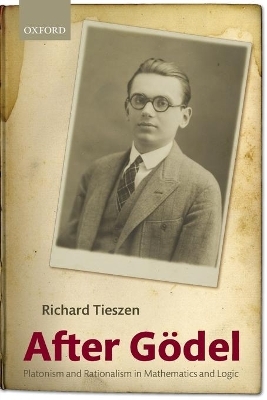
After Gödel
Platonism and Rationalism in Mathematics and Logic
Seiten
2013
Oxford University Press (Verlag)
978-0-19-968061-0 (ISBN)
Oxford University Press (Verlag)
978-0-19-968061-0 (ISBN)
Richard Tieszen analyzes, develops, and defends the writings of Kurt Gödel (1906-1978) on the philosophy and foundations of mathematics and logic. Gödel's relation to the work of Plato, Leibniz, Husserl, and Kant is examined, and a new type of platonic rationalism that requires rational intuition, called 'constituted platonism', is proposed.
Richard Tieszen presents an analysis, development, and defense of a number of central ideas in Kurt Gödel's writings on the philosophy and foundations of mathematics and logic. Tieszen structures the argument around Gödel's three philosophical heroes - Plato, Leibniz, and Husserl - and his engagement with Kant, and supplements close readings of Gödel's texts on foundations with materials from Gödel's Nachlass and from Hao Wang's discussions with Gödel. As well as providing discussions of Gödel's views on the philosophical significance of his technical results on completeness, incompleteness, undecidability, consistency proofs, speed-up theorems, and independence proofs, Tieszen furnishes a detailed analysis of Gödel's critique of Hilbert and Carnap, and of his subsequent turn to Husserl's transcendental philosophy in 1959. On this basis, a new type of platonic rationalism that requires rational intuition, called 'constituted platonism', is developed and defended. Tieszen shows how constituted platonism addresses the problem of the objectivity of mathematics and of the knowledge of abstract mathematical objects. Finally, he considers the implications of this position for the claim that human minds ('monads') are machines, and discusses the issues of pragmatic holism and rationalism.
Richard Tieszen presents an analysis, development, and defense of a number of central ideas in Kurt Gödel's writings on the philosophy and foundations of mathematics and logic. Tieszen structures the argument around Gödel's three philosophical heroes - Plato, Leibniz, and Husserl - and his engagement with Kant, and supplements close readings of Gödel's texts on foundations with materials from Gödel's Nachlass and from Hao Wang's discussions with Gödel. As well as providing discussions of Gödel's views on the philosophical significance of his technical results on completeness, incompleteness, undecidability, consistency proofs, speed-up theorems, and independence proofs, Tieszen furnishes a detailed analysis of Gödel's critique of Hilbert and Carnap, and of his subsequent turn to Husserl's transcendental philosophy in 1959. On this basis, a new type of platonic rationalism that requires rational intuition, called 'constituted platonism', is developed and defended. Tieszen shows how constituted platonism addresses the problem of the objectivity of mathematics and of the knowledge of abstract mathematical objects. Finally, he considers the implications of this position for the claim that human minds ('monads') are machines, and discusses the issues of pragmatic holism and rationalism.
Richard Tieszen is the author of Phenomenology, Logic, and the Philosophy of Mathematics and Mathematical Intuition, along with numerous papers and reviews on the philosophy of mathematics, philosophy of logic, and phenomenology. He co-edited Between Logic and Intuition: Essays in Honor of Charles Parsons, and is Professor of Philosophy at San José State University in California.
Preface ; 1. Setting the Stage ; 2. Consistency, and the Ascent to Platonic Rationalism ; 3. Godel's Path From Hilbert and Carnap to Husserl ; 4. A New Kind of Platonism ; 5. Consciousness, Reason, and Intentionality ; 6. Constituted Platonism, Reason, and Mathematical Knowledge ; 7. Minds and Machines ; 8. Reason, Science, and Evidence ; Bibliography ; Index
| Erscheint lt. Verlag | 16.5.2013 |
|---|---|
| Verlagsort | Oxford |
| Sprache | englisch |
| Maße | 156 x 235 mm |
| Gewicht | 403 g |
| Themenwelt | Geisteswissenschaften ► Philosophie ► Logik |
| Geisteswissenschaften ► Philosophie ► Metaphysik / Ontologie | |
| Mathematik / Informatik ► Mathematik ► Logik / Mengenlehre | |
| ISBN-10 | 0-19-968061-2 / 0199680612 |
| ISBN-13 | 978-0-19-968061-0 / 9780199680610 |
| Zustand | Neuware |
| Haben Sie eine Frage zum Produkt? |
Mehr entdecken
aus dem Bereich
aus dem Bereich
ein Gegenentwurf zum kurzfristigen Denken : so werden wir zu den …
Buch | Hardcover (2023)
REDLINE (Verlag)
18,00 €


